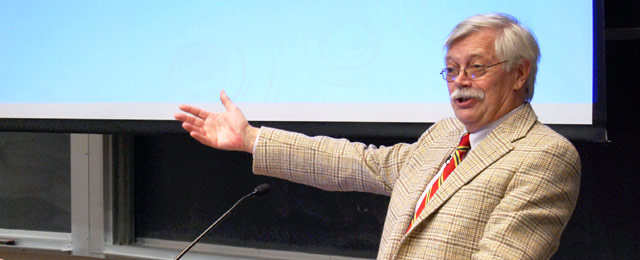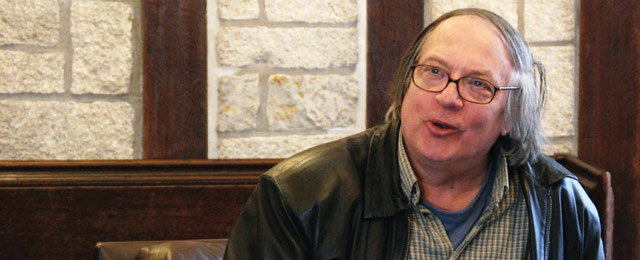Online courses directory (457)
This course will examine current conditions and trends in water and sanitation services in low and middle income countries. Within it we will take a critical look at the underlying political, economic, social, and technical reasons why almost a billion people lack access to improved water supplies and almost 2 billion still do not have improved sanitation services.
This course is designed to provide executives, managers, and supervisors the knowledge and tools to create and sustain an ethical culture in their company, department, or work group.
In this course, we will look at the properties behind the basic concepts of probability and statistics and focus on applications of statistical knowledge. We will learn how statistics and probability work together. The subject of statistics involves the study of methods for collecting, summarizing, and interpreting data. Statistics formalizes the process of making decisionsand this course is designed to help you cultivate statistic literacy so that you can use this knowledge to make better decisions. Note that this course has applications in sciences, economics, computer science, finance, psychology, sociology, criminology, and many other fields. Every day, we read articles and reports in print or online. After finishing this course, you should be comfortable asking yourself whether the articles make sense. You will be able to extract information from the articles and display that information effectively. You will also be able to understand the basics of how to draw statistical conclusions.
This Research Methods course is part one of the two-part Research Methods series, which also includes the Research Methods Lab course. Research is the foundation on which any solid science is built. This course will introduce you to research methodologies frequently used in the social sciences and especially those used in the field of psychology. It is important that you are able to not only identify the techniques used by others but also employ them yourself. The course is designed to provide you with the foundation you will need to apply certain techniques in the search for your own answers. The course will begin with an overview of how research, and its appropriate methodology, came about in science and, more specifically, psychology. We will then go over the ABCs of conducting research, learning how to define “variables” and why they are important. While this course will also touch upon statistics and their importance, it will not require a comprehensive knowledge of the subject. The course will concl…
This Research Methods Lab course is part two of the Research Methods series. You should not attempt this course without having first completed the Research Methods course (PSYCH202A [1]). This Lab extends beyond the basics of research methodology and the logic of experimental design, concepts you learned in PSYCH202A [2]. You will learn to put these concepts into practice while conducting laboratory experiments. While we may not explicitly apply all of the concepts introduced in the Research Methods lecture course, remember that each of them will remain relevant during the evaluation and review phases of your research. This course intends to acquaint the student with a variety of different research techniques. Students will participate in every stage of experimentation, from creation and editing to evaluation and review. As such, this course will not only review relevant concepts from the Research Methods lecture, but will also broach a number of practical matters, including the standard organizatio…
This introductory course in biology starts at the microscopic level, with molecules and cells. Before we get into the specifics of cell structure and behavior, however, let’s take a cursory glance at the field of biology more generally. Though biology as we know it today is a relatively new field, we have been studying living things since the beginning of recorded history. The invention of the microscope was the turning point in the history of biology; it paved the way for scientists to discover bacteria and other tiny organisms, and ultimately led to the modern cell theory of biology. You will notice that, unlike the core program courses you took in chemistry and physics, introductory biology does not have many mathematical “laws” and “rules” and does not require much math. Instead, you will learn a great number of new terms and concepts that will help you describe life at the smallest level. Over the course of this semester, you will recognize the ways in which the tiniest of molecules…
In this course, we will study the emergence of the major civilizations of the ancient world, beginning with the Paleolithic Era (about 2.5 million years ago) and finishing with the end of the Middle Ages in fifteenth century A.D. We will pay special attention to how societies evolved across this expanse of time
PURPOSE OF COURSE…
Overview of critical issues in women's health and human rights, including discrimination, poverty, violence, and unequal access to education, food, paid work, and health care.
This course provides an overview of major works of social thought from the beginning of the modern era through the 1920s. Attention is paid to social and intellectual contexts, conceptual frameworks and methods, and contributions to contemporary social analysis. Writers include Hobbes, Locke, Rousseau, Montesquieu, Adam Smith, Marx, Weber, and Durkheim.
In BIO101 [1], you were introduced to biology on a microscopic scale when you learned about the functions of molecules, genes, and cells. In this course, you will learn about biological changes that happen on a very large scale, across entire populations of organisms and over the course of millions of years, in the form of evolution and ecology. Evolution, the process by which different species of organisms have developed and diversified from earlier forms, has been a central theme in the field of biology ever since Darwin first published his theories about it. Mounting evidence from many different branches of science all point to the fact that species have experienced a gradual but definite physical change. In this course, we will learn about evolution and theories that stem from evolution. We will also learn about ecology, the study of the interactions between different types of organisms and their surroundings. Changes in surroundings will force organisms to adapt and changeoften in terms of th…
DISCLAIMER: This course is designed to address the fundamentals of clinical psychology. It will NOT provide the education or experience needed for the diagnosing and treating of mental disorders. This course will cover the basic concepts of clinical psychology, or the study of diagnosing, treating, and understanding abnormal and maladaptive behaviors. We frequently refer to these behaviorswhich include depression, anxiety, and schizophreniaas mental diseases or disorders. While you might have a general understanding of these disorders, this course will cover each in great detail. Many of you are likely familiar with the idea of therapy, whether because you or someone you know has been in therapy, or because you have seen it in popular TV shows or movies. Because many approaches to therapy draw from research on clinical populationsthat is, populations suffering from some sort of mental disordertherapy is closely related to the field of psychopathology. Although this class will not teach you how to cond…
Developmental psychology concerns itself with the changes (psychological and otherwise) that occur as a result of our physical and mental maturation. Typically, “development” refers to the systematic changes that take place between our conception and death. While this definition may seem quite broad, it will serve as a good starting point in our quest to understand the field of developmental psychology. The first thing we must realize as developmental psychologists is that our change is systematic. This means that the process by which we grow and mature over time is not defined by random, isolated events but by orderly and relatively long-term patterns. This also means that while individuals themselves may differ quite a bit, the developmental patterns that they undergo are similar. These concepts are crucial in that they allow us, as psychologists, to study the way in which people develop and to make predictions about the future based on that development. Developmental psychologists study both continuiti…
This course will introduce you to the major concepts of and debates surrounding industrial and organizational psychology. Industrial and organizational psychology is the application of psychological research and theory to human interaction (both with other humans and with human factors, or machines and computers) in the workplace. The phrase “industrial and organizational psychology” (sometimes referred to as “I/O”) may be somewhat misleading, as the field deals less with actual organizations and/or industries and more with the people in these areas. As mentioned above, “I/O” is an applied psychological science, which means that it takes research findings and theories that may have originally been used to explain a general phenomenon of human behavior and applies them to human behavior in a specific setting (here, the workplace). Consider, for example, the fact that many jobs require applicants to take a personality test. Psychologists originally developed this test to detect and diagnose abnorm…
This course covers the emergence of modern France. Topics include the social, economic, and political transformation of France; the impact of France's revolutionary heritage, of industrialization, and of the dislocation wrought by two world wars; and the political response of the Left and the Right to changing French society.
This is an introductory course in Greek history tracing the development of Greek civilization as manifested in political, intellectual, and creative achievements from the Bronze Age to the end of the classical period. Students read original sources in translation as well as the works of modern scholars.
Philosophy and the Science of Human Nature pairs central texts from Western philosophical tradition (including works by Plato, Aristotle, Epictetus, Hobbes, Kant, Mill, Rawls, and Nozick) with recent findings in cognitive science and related fields. The course is structured around three intertwined sets of topics: Happiness and Flourishing; Morality and Justice; and Political Legitimacy and Social Structures.
This course introduces learners to the principles of learning and behavior by surveying relevant theoretical and empirical approaches within psychology. The overall emphasis is on the theoretical foundations of psychology as they relate to human learning and behavior. The following topics will be reviewed: historical perspectives of early learning theories, prevailing theories of human development, classical and operant conditioning, effects stimuli have on learning and behavior, social learning, motivation, cognitive developmental theory in the context of learning stages and processes, memory and human information processing models, and problem-solving methods. Understanding these human processes is an integral part of psychology and other domains of human behavior, such as marketing, sports, health, education and relationships. Learning theories are an outgrowth from philosophies of thought. The philosophical approaches of rationalism and empiricism, and the works of Plato and Descarte form the…
Sensation and perception are the processes by which we absorb information from environmental stimuli and convert it into data that our brains and bodies use to modify behavior. This course will introduce you to these two closely related, though distinct, processes. We will begin with sensation, the physical process by which we use our sense organs (i.e. tongues for taste or noses for smell) to respond to the environmental stimuli around us. Perception, on the other hand, refers to our interpretation of stimuli. It occurs through cognitive processing and enables us to use information in order to change our behavior. While these processes may seem simple, they are just the opposite: large portions of the brain are devoted to the seemingly straightforward processes of seeing and hearing, and entire sensory organs have developed in order to facilitate them. Further, while the brain is constantly using the information it gathers to make decisions, we are entirely unaware of this activity. Unbelievably, studying il…
How does the brain function? How does it interact with the body in order to control and mediate behaviors and actions? Though psychologists have long studied these questions, the workings of the brain remain, in large part, a mystery. In this course, we will explore the field of psychology devoted to the pursuit of these questions: neuropsychology or the study of the structure and function of the brain as it relates to psychological processes. We will study significant findings in the field, noting that technological improvements have often enabled substantial advancements in field research. You may, for example, take MRIs or PET scans devices used to diagnose medical problems for granted, but these have only relatively recently enabled researchers to study the brain in greater detail. While a formal background in biology is not required for this course, you will find that neuropsychology relies heavily on the discipline. In fact, psychologists and biologists have often explored similar issues, though t…
Trusted paper writing service WriteMyPaper.Today will write the papers of any difficulty.










